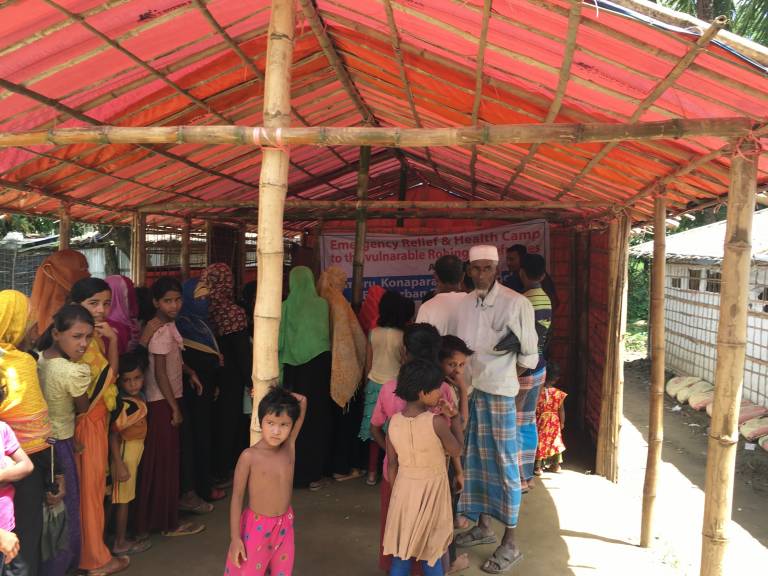UCL Institute for Risk and Disaster Reduction awarded funding for research into Rohingya Crisis
3 October 2018
Professor Peter Sammonds (UCL IRDR) and his team have been awarded funding by the British Academy to pursue research designed to help tackle the United Nations’ Sustainable Development Goals.

The research will focus on “Rohingya Journeys of Violence and Resilience in Bangladesh and its neighbours: Historical and Contemporary Perspectives.” Which will examine the political economy of violence that has resulted in the forced displacement of over two million Rohingya from Myanmar in recent decades.
Taking the August 2017 mass-scale exodus from Myanmar following ethnic cleansing as a starting point, the UCL-led team will examine the impact of the violence on this vulnerable refugee community in Bangladesh. These impacts will be contextualised historically and in terms of gender and faith, as they explore how the nationalist ideology and politics behind identity characteristics in Bangladesh, India and Malaysia over the last seven decades have affected Rohingya experiences of welcome and violence in the region today.
Importantly, the team will examine how the Rohingya refugees’ own understandings of violence and risk have shifted as their locations have changed, and what coping mechanisms and aspirations are emerging from within the community as they look towards the future.
Professor Sammonds and his team are among 27 distinguished academics to receive funding from the Academy, the national voice of the humanities and the social sciences, under its Sustainable Development Programme.
The programme supports researchers in the humanities and the social sciences working to generate evidence on the challenges and opportunities faced in developing countries. Awards are worth up to £300,000 and fund projects which demonstrate innovative and interdisciplinary approaches to one or more of the programme’s key sub-themes of heritage, dignity, and violence.
Professor Peter Sammonds said: “Violence towards the Rohingya in Myanmar, which the UN Human Rights Council has cited as a crime against humanity, caused the mass exodus. The majority of the fleeing Rohingya are now living in overcrowded temporary makeshift shelters, of bamboo frames and plastic sheeting in Bangladesh. Others form a growing diaspora across South and South-East Asia. Understanding violence, risk, coping mechanisms and aspirations in their historical and geopolitical contexts will help towards building community resilience and inform policy in tackling this humanitarian tragedy.”
The Sustainable Development Programme, which has already funded 16 awards under its first phase (launched in 2016), is supported by the UK Government’s £1.5bn Global Challenges Research Fund.
Professor Ash Amin, Foreign Secretary, British Academy said: “We are delighted to announce the 2018 Sustainable Development Programme award-holders. Their cutting-edge research will demonstrate the crucial role played by the humanities and social sciences in enhancing our understanding of development.
“Moreover, their collaborations with partners in the Global South will ensure that findings with real-world impact evolve in a truly inclusive, collegiate way.”
Links
- Professor Peter Sammonds’ academic profile
- UCL Institute for Risk & Disaster Reduction
- The British Academy
- United Nation’s Sustainable Development Goals
Image
- Rohingya refugees in the camps in Bangladesh, August 2018 © UCL IRDR.
 Close
Close

